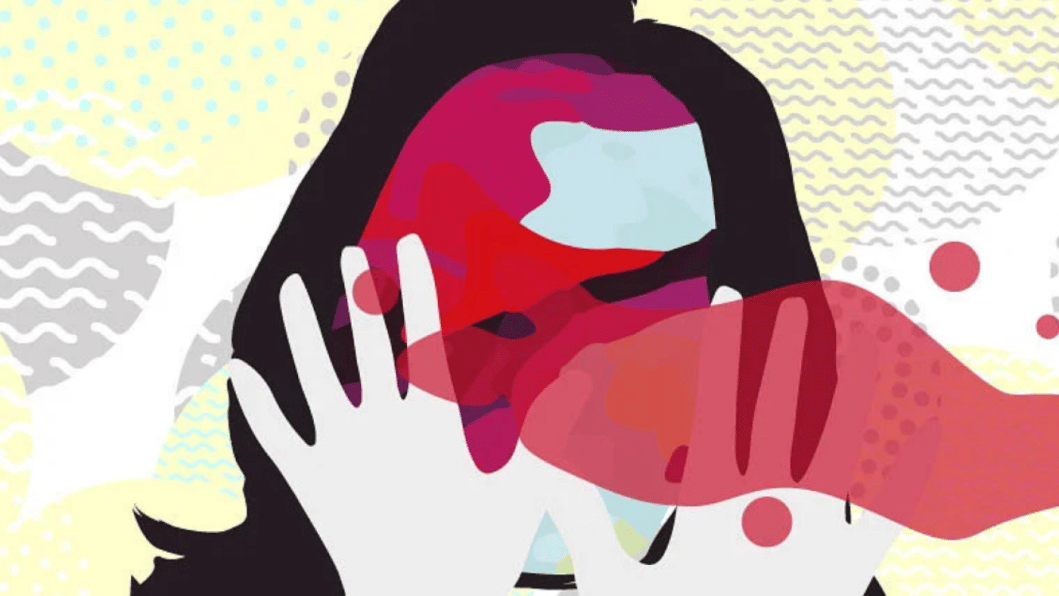No, it’s not alright to dress up as an acid attack victim

Dressing up as a monster of some kind – zombie, witch or the stuff of nightmares – may be foreign, but the trend has been adopted by Bangladeshis, and not even particularly those who are necessarily affluent, or who have had more exposure to foreign cultures. I'm not necessarily referring to Halloween costumes, by the way. I have come across Bangladeshi SFX or special effects artists who have the ability to metamorphose into grotesque monsters that would even trump any Kafka-esque creature, or be a perfect candidate for a Tim Burton film. I have seen boys fascinated with the character of the mentally deranged super-villain The Joker, so much so that at any Comicon, you'll not just see one, but multiple Jokers – in gaudy purple suits, green hair and a chalky-white face that, through makeup, appears to have a "Glasgow smile" (a wound caused by making a cut from the corners of the mouth up to the ears, leaving a scar in the shape of a smile). I could give more examples, but you get the idea.
Unfortunately, certain non-fictitious groups of people in our Bangladeshi society are perceived to have monstrous appearances and are thereby othered by the masses. These include members of the hijra community and victims of acid attacks. While it would be belittling for one to dress up as a member of the hijra community, because no one wants to be mocked at for pretending to have a non-conforming gender identity of "half-ladies" (transphobia and/or intersex phobia are a topic for another day), never could I have imagined that a day would come when I would have to witness a youngster dressing up as an acid attack victim for a dress-as-you-like competition at an educational institution in Dhaka.
And yet, unfortunately, it happened, and the cosplayer, in her teens, was awarded first prize. The misguided teen was surely unable to comprehend that pretending to have the distorted face of a victim of a crime motivated by vengeance, aimed at disfiguring the face (and more often than not, blinding the victim) is wrong on many levels.
Teenagers may not have the maturity to understand political correctness, and perhaps in many cases, their parents lack the wisdom to guide them. But shouldn't educational institutions play any role in fostering sensitivity? What kind of a society do we live in, where an institution fails to reprimand a student for their lack of empathy towards victims of one of the most violent crimes, and in fact ends up rewarding them?
For starters, dressing up as someone who has undergone unimaginable pain and suffers from lifelong mental, emotional, and physical scars is distasteful, to say the least. Moreover, posting very chirpy photos and selfies as a pretend acid attack survivor on social media is downright insensitive towards real-life survivors of acid attacks. Furthermore, using prosthetic makeup to turn someone's trauma into a "fun" project to participate in a competition with the aim to "win" is simply in bad taste. I'd like to call this tactlessness an act of "pain appropriation," i.e. using the victim's pain for one's own benefit, without the consent of the victim.
And last, but not the least, it is appalling to see that a college in Dhaka has awarded the unwise teen with the first prize; it is disturbing to see the participant receive any reward for this act, for that matter.
Teenagers may not have the maturity to understand political correctness, and perhaps in many cases, their parents lack the wisdom to guide them. But shouldn't educational institutions play any role in fostering sensitivity? What kind of a society do we live in, where an institution fails to reprimand a student for their lack of empathy towards victims of one of the most violent crimes, and in fact ends up rewarding them? If realistic special effects makeup is simply looked at for its artistic value, without judging the implications of such a form of "art," then perhaps that institution lacks basic values that should have otherwise been enough to disqualify the ignorant and mindless cosplayer from the competition. If this had been done, the authorities concerned could have taught a valuable lesson to the participant in a strategic manner. If there is anyone to blame here, it is the educational institution that has failed to do its part.
This isolated incident may not mirror the state of every educational institution in the city or the country, but it is definitely one that is worrisome. Schools and colleges tend to focus on the academic syllabus, allow the scope for some extracurricular activities, and may organise a couple of annual events at most, but neglect something that's even more important – values education. The incorporation of secular moral education classes into the curriculum will enable children to develop capabilities as they grow up, such as suppressing selfish tendencies and channelling their energies towards the welfare of society. Without values education, they may not develop a strong moral compass.
It is high time for curriculum developers to consider this matter and design carefully planned lessons incorporating art, stories, service-oriented activities, music/songs, cooperative/non-competitive games, etc in order to instil ethics and virtues in children, and thus help in the upbringing of morally sound, upright human beings. It is up to the schools, then, to make sure they grow in the right direction, and in the process, "cast their beams like brilliant candles."
Noora Shamsi Bahar is a writer, translator, and a senior lecturer at the Department of English and Modern Languages in North South University (NSU).

 For all latest news, follow The Daily Star's Google News channel.
For all latest news, follow The Daily Star's Google News channel. 





Comments